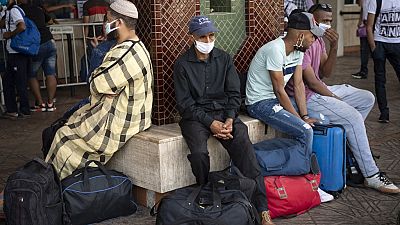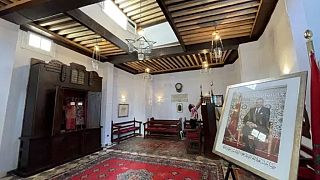Morocco
Morocco launched on Tuesday the great annual summer transit plan for its diaspora with a scheme excluding all sea links via Spain, and with discounts on air links to cushion the cost difference for travelers.
Against the backdrop of a major diplomatic crisis between Rabat and Madrid, the 2021 edition of this summer transit plan, which the Moroccan press presents as "one of the largest movements of people on the European continent", excludes all Spanish ports, including Algeciras located less than an hour's crossing from Tangier.
The only maritime links planned are from France (Sète, Marseille), Italy (Genoa) or Portugal (Portimao), with a total of 650,000 passengers and 180,000 vehicles expected between June 15 and September 15 - four times less than usual - according to figures from the Moroccan Ministry of Transport.
The Moroccan diaspora greeted the plan with immense disappointment, lamenting the high costs and longer crossing times, according to the local press.
Fares reduced
Faced with the discontent, King Mohamed VI ordered on Monday the local actors of air and sea transport to "practice reasonable prices". The national airline Royal Air Maroc (RAM) has published lower fares on all its destinations for the 2.5 million seats offered this summer.
The expectation of the diaspora is high because in 2020, travel was limited due to the pandemic. Fewer than 50,000 passengers and 22,000 vehicles had been transported during the summer, according to official figures.
In 2019, about three of the five million Moroccan expatriates in Europe had returned to their native country in the summer, crossing Spain and then the Strait of Gibraltar.
Contacted by AFP, the Moroccan Ministry of Foreign Affairs did not want to specify whether the political or health situation had motivated the plan.
Exclusion of Spain
The exclusion of Spain from the scheme represents losses of between 450 and 500 million euros, just for the ferry companies operating the crossing, according to a calculation by the company FRS Iberia.
It also jeopardizes several thousand jobs, especially seasonal jobs, in the region of the port of Algeciras.
The arrival of nearly 10,000 migrants in Ceuta in mid-May, following a relaxation of border controls on the Moroccan side, marked the culmination of a major crisis between Rabat and Madrid.
It worsened with the hospitalization in Spain of the leader of the Polisario Front Sahrawi independence movement Brahim Ghali, considered by Morocco to be a "war criminal.












01:09
NGOs sue Spain for ignoring illegal fishing threat to African coasts
Go to video
South Sudan to send delegation to the U.S. in a effort to appease tensions
01:02
WHO member countries draft landmark preparedness treaty for next pandemic
Go to video
France expels 12 Algerian officials amid diplomatic tensions
Go to video
South Africa appoints Mcebisi Jonas as special US envoy in bid to ease tensions
Go to video
Mauritius: Ex-finance minister released on bail after corruption charges